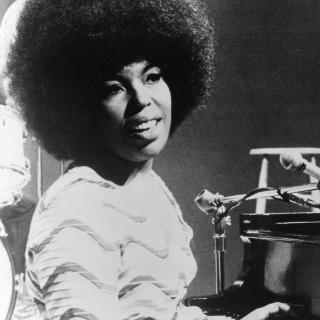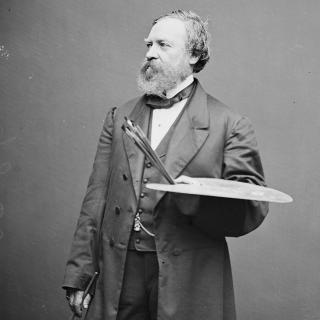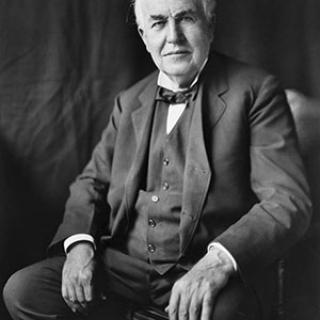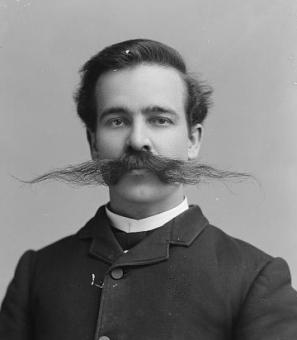Dr. Anna J. Cooper: MVP of D.C. Education
Dr. Anna J. Cooper, whose life spanned from the Civil War to the civil rights movement, was able to accomplish a lot in the District during her time here. Cooper was a tireless advocate for the underpriviledged, especially black women, and accomplished much in her time as a DC educator.
Born in 1858 in Raleigh, North Carolina, Cooper was the daughter of slave Hannah Stanley Haywood and slave owner George Washington Haywood. The only reference Cooper ever made to George Haywood was when she wrote that she owed the man “not a soul.” Of her mother, she wrote that Hannah was “the finest woman [she] had ever known” and her happiest childhood memory was of teaching her mother to read.[1]
In 1868, Cooper received a scholarship to study at a local school for freed slaves, St. Augustine’s. Cooper learned a great many things in her 14 years at St. Augustine’s, among them, male children were given every opportunity to advance while girls were discouraged from learning anything more than required to be a wife and mother. Cooper resisted these and learned as much as she could.
At 18, she fell in love with a fellow student, George Cooper, and the two were happily married for two years. When George suddenly died, Cooper became a widow. Ironically this devastating event allowed Cooper to embark on the path that would lead to her life’s work and academic acclaim. At the time, a married woman could hardly expect to work outside the home. Cooper summed up the expectation of wives:
How shall I so cramp, stunt, simplify and nullify myself as to make me eligible to the honor of being swallowed up into some little man?
Though George Cooper may have been worth it, it is no surprise that Anna never remarried.
With a scholarship to Oberlin College, Cooper earned both a bachelor's degree and a master's degreein mathematics, making her in 1887 one of the few black Americans with a graduate degree — and only the second black woman to graduate from Oberlin itself. And besides the regular difficulty of higher education, Cooper had to work for her room and board and she fought the administration into allowing her to take the “Gentleman’s Course” as opposed to the lesser “Ladies’ Course,” so she could get a higher quality education.
Her dedication did not go unnoticed by the superintendent of DC’s schools. After graduation, Cooper was recruited to teach at the city’s only black high school, M Street High School (later Dunbar High School), the first black public high school in the country. She taught math, science, and Latin, and eventually became the principal in 1902. By all accounts, Cooper was excellent at her job. The prevailing opinion at the time was that black students, such as the kids at M Street High, should be taught only what they needed for service positions or menial labor. Rather than structuring M Street as a trade or vocational school, Cooper prepared her students for college and gave public speeches on the importance of education. She paid special care to her female students, meeting with them once a month for a “heart-to-heart.”[2] Someone once had the nerve to ask her whether her educated girls would be able to find husbands. Cooper laughed that anyone would think that was a serious concern, and bit back that any such women could certainly find it in themselves to endure this fate.
The more Cooper excelled at her job, the unhappier people were with her. Cooper’s students went on to graduate from universities such as Harvard University, Brown University, Oberlin College, Yale University, Amherst College, Dartmouth University, and Radcliffe College. Cooper’s white supervisor, Percy Hughes, told her that her students ought to be learning trades. M Street High School was accredited for the first time by Harvard. A trial was held to depose Cooper as principal. Annette Eaton, a former student of Cooper’s, had this to say about the mood toward Cooper:
If you could ... sense the aura of DC in those days, you would know that it only took her daring in having her students accepted and given scholarship at Ivy League schools to know that the whitepower structure would be out to get her for any reason or for no reason. It was pure heresy to think that a colored child could do what a white child could.[3]
The DC Board of Education charged Cooper in 1905 with a variety of offenses, including being too sympathetic to undeserving students and in not fostering a “proper spirit of unity and loyalty.”[4] Though she was supported in part by the public, including the black paper The Washington Bee and the white paper The Washington Post, Cooper was ultimately dismissed by the Board. She taught for a time in the Midwest until DC education was under new management, and she was invited back in 1910. That’s when she really kicked up her game.
While continuing to rock the worlds of the kids on M Street, Cooper adopted five small children that her relatives had been unable to care for. She became a new mother in this way in 1915, at the age of 57. With all this on her plate, what else could Anna J. Cooper do? Become the fourth American black woman to earn her doctorate, of course. Despite further obstacles from prominent people in DC, Cooper successfully defended her dissertation (The Attitude of France on the Question of Slavery Between 1789 and 1848) at the Sorbonne University in Paris in 1925, at age 67.
Dr. Cooper never stopped advocating for education and opportunity for the underprivileged. In the 1930s she was president of Frelinghuysen University in DC and used her own house to teach classes to the black students. She continued writing well into the 1940s, though her most famous work remained her 1892 collected works, A Voice from the South: By a Woman from the South. We present its most famous line, which was quoted anonymously by W.E.B. DuBois:
Only the Black woman can say “when and where I enter, in the quiet undisputed dignity of my womanhood, without violence and without suing or special patronage, then and there the whole negro race enters with me.”
Dr. Anna J. Cooper died at age 106, in 1964 and was buried by her husband in Raleigh, North Carolina. Her book, her speeches at the 1893 Worlds Congress of Representative Women and the 1900 Pan-African Conference, and her various other writings have stood the test of time. If you’ve got a passport, feel free to take a gander at page 26 and 27:
“The cause of freedom is not the cause of a race or a sect, a party or a class – it is the cause of humankind, the very birthright of humanity.” – Anna Julia Cooper
Sources:
“City Paragraphs.” The Colored American. (Washington, D.C.), 15 March 1902. Chronicling America: Historic American Newspapers. Lib. of Congress.
“The High School Idea.” The Colored American. (Washington, D.C.), 31 May 1902. Chronicling America: Historic American Newspapers. Lib. of Congress.
“New School Principal: Mrs. Anna J Cooper Chosen to Succeed Mr. R. H. Terrell.” The Colored American. (Washington, D.C.), 04 Jan. 1902. Chronicling America: Historic American Newspapers. Lib. of Congress.
Thomson, Peggy. The Pilot and The Lion Cub: Odd Tales from the Smithsonian. (Smithsonian Institution: 1986).
Washington, Mary Helen. “Anna Julia Cooper: The Black Feminist Voice of the 1890s.” Legacy, 4.2 (1987).
Williams, Paul. “Anna Julia Cooper & Frelinghuysen University.” The House History Man.


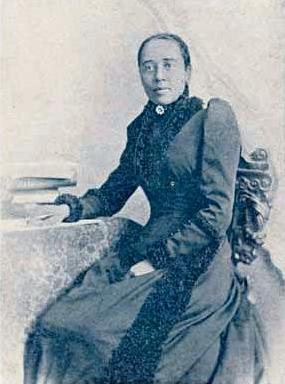
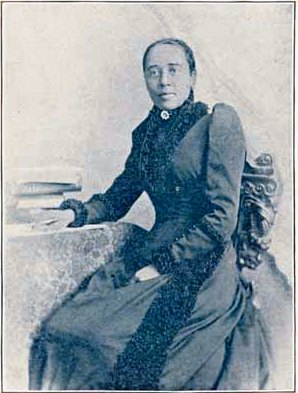
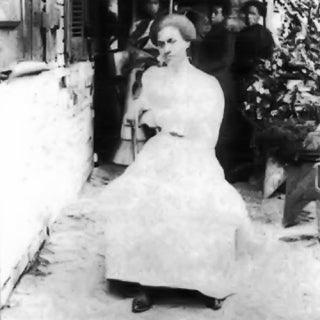
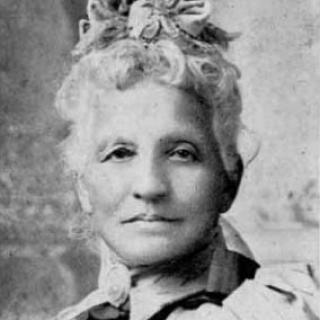
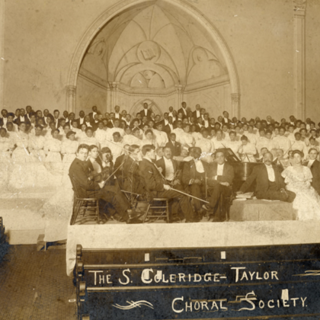
![Sketch of the mythical fuan by Pearson Scott Foresman. [Source: Wikipedia]](/sites/default/files/styles/crop_320x320/public/2023-10/Goatman_Wikipedia_Faun_2_%28PSF%29.png?h=64a074ff&itok=C9Qh-PE1)







